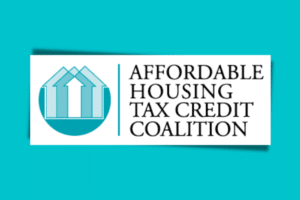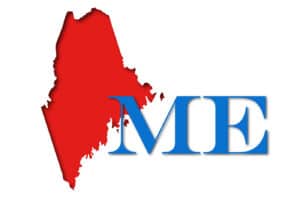News

AHTCC Accepting Nominations for Tax Credit Excellence Awards
The Affordable Housing Tax Credit Coalition (AHTCC) is accepting entries for the 2020 Charles L. Edson Tax Credit Excellence Awards through March 11.

HUD Accepting Entries for Secretary’s Awards for Healthy Homes
HUD is accepting entries for the 2020 Secretary’s Awards for Healthy Homes through March 10. The competition highlights affordable housing projects that have improved the quality of life for their low- and moderate-income tenants.

Maine Legislature, Governor Approve State LIHTC
Maine Governor Janet Mills (D) signed H.P. 1180 to create a State LIHTC that is equal to the Federal LIHTC, beginning January 1, 2021. The Maine LIHTC will have a $10 million annual statewide cap, but unallocated funds can be carried forward to create a maximum $15 million per year.

Nashville Local Government Adds Department of Codes and Building Safety to Affordable Housing Fast Track Legislation
The Metropolitan Council of Nashville and Davidson County (Metro Council) amended the original fast track legislation to include inspections and certificates of occupancy by the Department of Codes and Building Safety for qualifying affordable housing developments.

Trump Administration Releases FY 2021 Budget Request
President Trump’s Administration released the Fiscal Year (FY) 2021 budget request, “A Budget for America’s Future.” HUD is allocated $47.9 billion in funding, a 15.2 percent decrease over FY 2020 enacted levels with notable zeroing out of the HOME program, Community Development Block Grants (CDBG), Public Housing Capital Fund, Choice Neighborhoods and HOPE VI.

HUD Guidance on Delegated Processing for Section 202, 811 NOFAs
HUD published Housing Notice 20-02 for Delegated Processing for Certain Capital Advance Projects, which aligns with HUD’s most recent Section 202 and 811 Capital Advance Notices of Funding Availability (NOFA). The notice updates Housing Notice 2013-12 by streamlining the firm commitment process by mandating a timely issuance within 12 months

HUD Awards $51 Million in Section 202 Grants
HUD awarded more than $51 million in Section 202 grants to nonprofit organizations across the country to finance more affordable housing construction, provide rental assistance and facilitate supportive services delivery for very low-income seniors.

Treasury, IRS Release Final OZ 8996, 8997 Forms
The Department of the Treasury and the Internal Revenue Service (IRS) released the final versions of Form 8996 – Qualified Opportunity Funds, 8996 instructions and Form 8997 – Initial and Annual Statement of Qualified Opportunity Fund Investments.

Alabama Court Says State Must Consider Extended-Use LIHTC Restrictions in Property Tax Assessment
An Alabama circuit court ruled against the state Department of Revenue (DoR) concerning its policy of disregarding LIHTC extended-use restrictions when determining assessment of value for property taxes. The Circuit Court of Jefferson County ruled in favor of the Alabama Affordable Housing Association in its lawsuit against the DoR. The court found that DoR’s approach […]

Democrats $760 Billion Infrastructure Package Calls for Increased LIHTC, HTC, NMTC, PAB and Broadband
Last week House Democrats released a $760 billion infrastructure framework, which calls for strengthening existing infrastructure financing tools, like LIHTC, the New Markets Tax Credit (NMTC) and the Historic Tax Credit (HTC). Specifically, the Moving America and the Environment Framework calls for expanding the three tax credits, as well as expanding the national volume cap for private activity bonds (PAB). The framework also includes $86 billion over five years to pay for the deployment of high-speed broadband in unserved and underserved communities, low-interest financing for broadband deployment and digital equity activities.

IRS Guidance to HUD on Average Income AMI Calculations
The Internal Revenue Service (IRS) released Revenue Ruling 2020-04, which clarifies the manner to properly compute the 70 and 80 percent income limits applicable to the LIHTC under Section 42 of the Internal Revenue Code. The 70 percent limit is 140 percent or less of the income limit for a very low-income family of the same size and the 80 percent limited is 160 percent or less of the income limit for a very low-income family of the same size.

FHA Posts 2020 MAP Guide Appendix 16 For Review
The Federal Housing Administration (FHA) posted a draft of Appendix 16 on Organizational Chart for Lease Structure of its 2020 Multifamily Accelerated Processing (MAP) Guide. To provide feedback, respondents must use the 2019 Draft MAP Guide Response Worksheet and e-mail the response worksheet to HSNG_MF_2019MAPGuide-DraftingSuggestions@hud.gov by February 12.